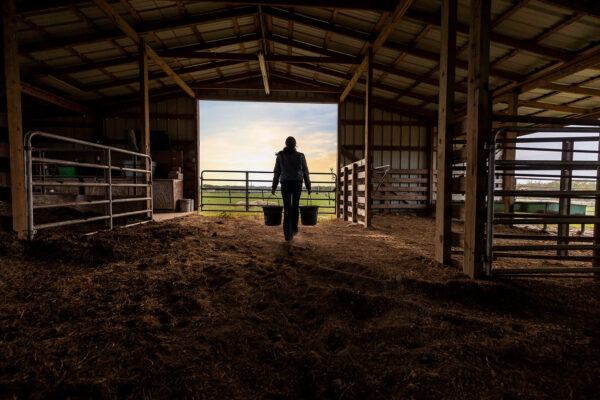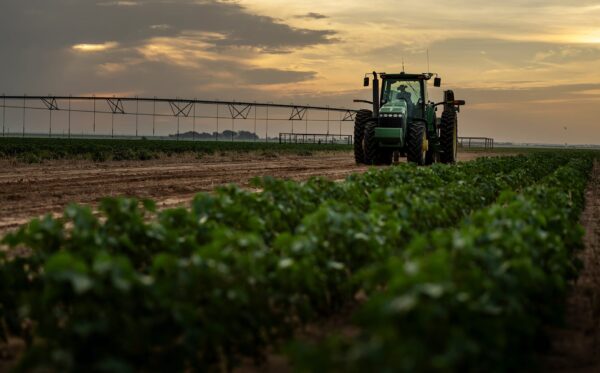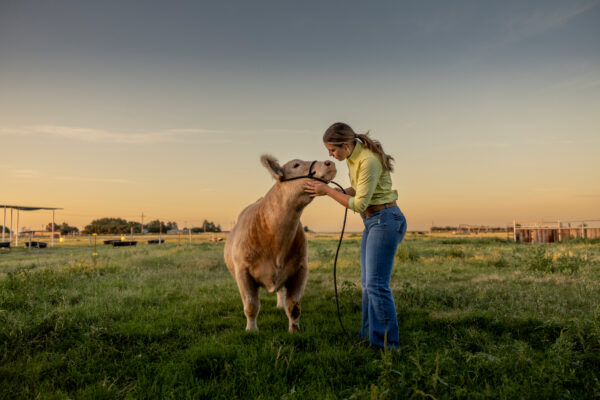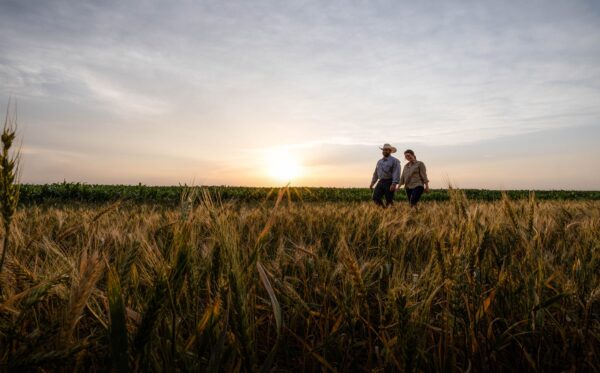An Introduction to Farm Loans: What You Need to Know about Farm Loans
Author: Capital Farm Credit
Posted on: 2/5/24
Farm loans are a cornerstone of agricultural business, providing vital financial support to both established and aspiring farmers. Known as agriculture loans, and farm operating loans, these types of loans are specialized financial products tailored to meet the unique needs of the agricultural sector. They serve as a lifeline, facilitating everything from the purchase of land and equipment to the management of day-to-day operations. Farmers may need a loan for a variety of reasons, including expanding their farm operations, investing in new technology, covering the costs of harvest, or coping with unexpected challenges like natural disasters. Given the cyclical and unpredictable nature of farming, access to credit through agricultural loans often determines the sustainability and growth of a farm.
Types of Agricultural Farm Loans
Understanding the different types of farm loans is crucial for any farmer looking to finance their agricultural ventures. Knowing the different types of loans and their requirements will help a first-time farmer make an informed decision and improve financial stability. We’ll look at the different types of loans you may need as a farmer or rancher.
7 Types of Agricultural Farm Loans:
- Operating Loans – These loans help cover the daily expenses of running a farm, such as seeds, fertilizer, and livestock feed.
- Equipment Loans – This type of farm loan is specifically designed to finance the purchase of farming equipment like tractors, harvesters, and irrigation systems.
- Real Estate Land Loans – A farm loan used for purchasing farmland or investing in property improvements.
- Agribusiness Loans – Tailored for larger agricultural businesses, these loans cover a wide range of needs, from expanding facilities, to buying bulk supplies.
- Improvement Loans – This type of farm loan is for improving or upgrading existing farm structures or systems.
Pros and Cons of Different Agriculture Loans
As with any type of agricultural loan, there are pros and cons to each type. It is important to know that the specifics of each loan type can be further influenced by the type of farming you do (crops, livestock, etc.) and your individual goals. If you have any questions about specific loans, please call one of our agents for a deeper dive into your needs and greater detail on a specific loan. For now, we’ll keep it straightforward for first-time borrowers to learn the ins and outs of these loans.
| Type of the Loan | Pros | Cons |
|---|---|---|
| Operating Loans | Flexibility: Used for daily farming needs like seeds, fertilizer, fuel, and wages. Short-term: Typically paid back within a year, easing the repayment burden. Lower interest rates: Compared to other loans, this type of loan tends to be more affordable. | Not for major investments: Can’t be used for buying land for example. Repayment pressure: Requires timely payments due to shorter terms. Collateral might be required: Depending on the lender, you might need to secure the loan with assets. |
| Equipment Loans | Targeted financing: Allows buying specific equipment, improving farm efficiency. Fixed payments: Predictable monthly payments for easier budgeting. Longer terms: Compared to operating loans, repayment periods can be several years. | Higher interest rates: May be higher than operating loans due to longer duration. Depreciation risk: Equipment value can decrease over time, impacting loan collateral. Potential for overborrowing: Temptation to buy beyond immediate needs. |
| Real Estate Loans and Land Loans | Land ownership: Invest in your farm’s future and build equity. Long-term stability: Predictable property taxes and mortgage payments. Potential appreciation: Land value can increase over time, creating wealth. | High upfront costs: Down payments can be substantial, requiring significant savings. Long-term commitment: Large loan amounts mean longer repayment periods. Market fluctuations: Risk of property value decrease affecting loan-to-value ratio. |
| Agribusiness Loans | Expansion capital: Fund processing facilities, value-added operations, or diversifying ventures. Business growth: Invest in marketing, technology, or new product lines. Tailored terms: Lenders may offer flexible structures based on your specific business needs. | Complex qualification: Business plans, financial projections, and a strong credit history are often required. Higher risk: Lenders may charge higher interest rates due to potential uncertainty. Personal liability: Depending on the loan structure, you might be personally liable for repayment. |
| Improvement Loans | Farm enhancements: Invest in infrastructure upgrades, storage facilities, or renewable energy solutions. Increased productivity: Improved operations can lead to higher yields and profits. Environmental benefits: Upgrade to sustainable practices for long-term resource management. | Varying costs: The loan amount depends on the scope of improvements, potentially larger than equipment loans. Potential downtime: Construction or installation disruptions might temporarily impact farm operations. Return on investment may vary: Carefully evaluate the cost-benefit of each improvement project. |
Loan Eligibility Criteria
Understanding and meeting eligibility requirements is crucial to securing funding for new farmers and ranchers. It can pave the way to financial stability by demonstrating your creditworthiness and a solid business plan. Working with a reputable lender such as Capital Farm Credit who fully explains loan eligibility criteria to help you manage risks and avoid predatory lending practices.
Eligibility for a farm loan generally hinges on several factors:
- Credit History & Score – A solid credit history and a good credit score are considered indicators of your reliability as a borrower. A quality credit score builds trust with lenders. It’s like a vote of confidence that you’ll make payments on time. A strong credit score can also give you better rates, which will have an impact on your bottom line.
- Income Requirements –Lenders will look at your income to determine your capacity to repay the loan.
- Farm Experience –Especially for first-time farmers, some level of experience or education in farming can be beneficial.
For first-time farmers, building a strong credit history may be challenging. Remember, credit scores are only one of the factors lenders use to determine your eligibility. To overcome credit-related issues first-time farmers can look to government programs, collaborate or partner with experienced farmers, find alternative credit options such as microloans, and check with local and regional agricultural assistance programs.
Additionally, the U.S. Department of Agriculture has a wealth of information for farmers. Find financial resources, support, and more for farmers and ranchers on their site.
Remember, before choosing any loan, thoroughly research options and compare interest rates, terms, and fees. Take advantage of loan rate calculators and other tools to get an accurate assessment. It’s crucial to choose a loan that aligns with your specific farm needs and financial situation. Consulting with our agricultural lending experts will provide valuable guidance in navigating the farm loan landscape.
We encourage you to take the next step in your agricultural journey with Capital Farm Credit, your partner in growth and success. Find an office that’s convenient to you, inquire online about our agricultural financing, or speak with one of our expert lending team members at 1-877-944-5500.



